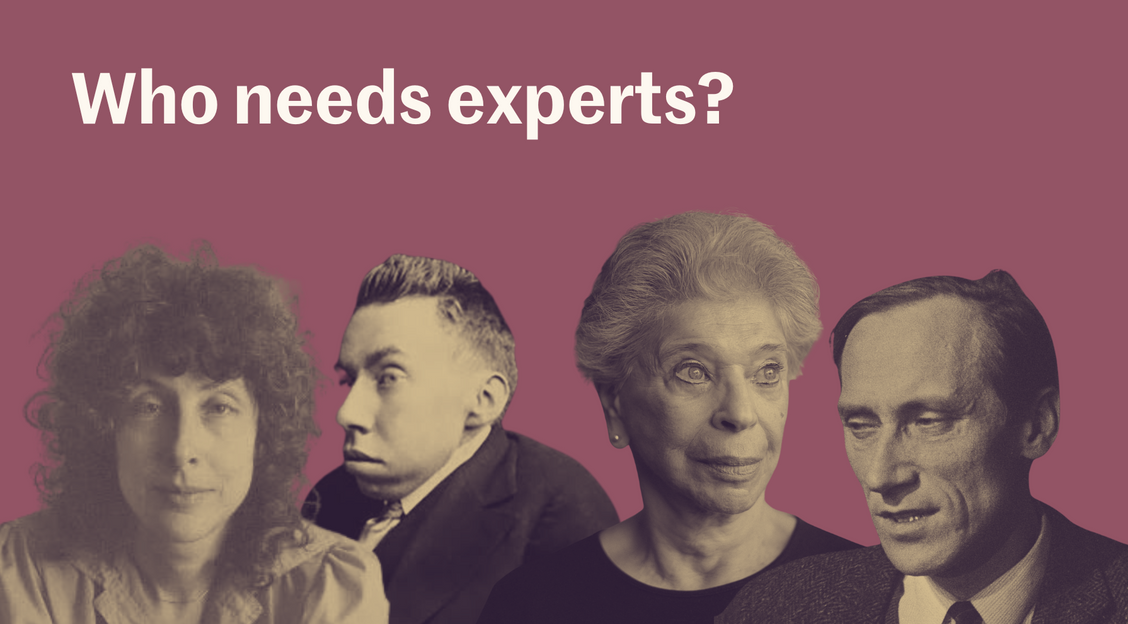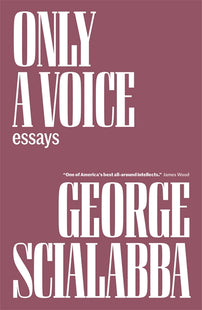Who needs experts?
And what even is the role of the public intellectual in the post-truth age?

Do intellectuals matter? In this age and country, there’s room for doubt. Certainly we haven’t diffused general enlightenment, which is our job. Among the countless examples of American un-enlightenment I’ve seen reported in recent years: 50 percent of Americans told pollsters that the earth has been visited by UFOs, and nearly all of them also believed that the US government has covered up this fact. Forty percent did not know whom the United States fought in World War II. Six percent reported reading one or more books a year.
Majorities of Americans believed that Saddam Hussein helped al-Qaeda carry out the atrocities of 9/11 and that weapons of mass destruction were found in Iraq after the US invasion. In a recent NPR poll, a majority of Americans either agreed or were not sure whether “a group of Satan-worshiping elites who run a child sex ring are trying to control our politics and media.” The pandemic spawned its own delusions: early in 2020 approximately one-third of Americans believed that scientists had created and disseminated the coronavirus; a few months later, another third believed that the virus was sent by God to teach humanity a lesson. On the day of the Capitol Hill riot, 39 percent of Americans believed the 2020 election had been stolen, for no better reason than that President Trump said so. To all such people, the American intelligentsia has been of very little use. We may as well have been publishing our books, essays, and op-eds on Mars.
In another sense, however, we matter too much. A loathing for intellectuals was almost a defining characteristic of Trump’s base. At one point in the 2016 campaign, Trump told a crowd gleefully: “I love poorly educated people!” He didn’t love them enough, apparently, to offer them more than a few crumbs in his huge, one-percent-friendly tax cut the following year. But did intellectuals succeed in pointing out that hypocrisy to the poorly educated? Did we try?
It’s not entirely our fault, perhaps. If we had tried, we would have encountered a profound mistrust of intellectuals, skillfully cultivated by generations of Republican political strategists. “Eggheads,” “pointy-heads,” “New Class,” “silent majority,” “real Americans,” “feminazis,” “baby-killers,” “sushi-eating,” “latte-drinking”—with these and many other tropes, Republican politicians and their operatives and media surrogates, from Paul Weyrich to Lee Atwater to Frank Luntz to Karl Rove to Rush Limbaugh and Sean Hannity have planted in less-educated voters not a healthy and discriminating skepticism toward experts but a belligerent and preemptive rejection of all complexity, leaving them vulnerable in turn to Republicans’ kindergarten-level ideas about supply-side economics, abortion, immigration, race, evolution, and climate change.
What’s more, we wily intellectuals allegedly have designs on everything our stalwart countrymen hold dear. In concert with power-hungry liberal politicians, we are planning to introduce radical innovations in every sphere of social life: child care, schooling, zoning and city planning, law enforcement, marriage, and religious liberties, trampling on long-settled customs and traditional understandings, until ordinary Americans no longer recognize their country. As a sales campaign, this has been fantastically successful. And as always with successful propaganda, there’s a grain of truth in it. Intellectuals and liberal politicians have rarely taken seriously enough their democratic obligation to persuade people before
legislating for them. (Of course, this may partly be because politicians now have no time to talk to voters: they must spend 50 percent of every day raising money, an entirely predictable result of Citizens United and other Supreme Court decisions that have enshrined money as the arbiter of American politics.)
Whatever blend of liberal arrogance and conservative chicanery is to blame, the gulf between intellectuals and our fellow citizens is very wide. What’s more, political propaganda and campaign finance laws are not even the most important obstacles to a democratic culture. They are, so to speak, contingent obstacles; there are other, more fundamental ones that arise from the very structure of ownership in this society. Marx observed: “In every age, the ideas of the rulers are the ruling ideas.” He did not mean, of course (it is generally necessary in the United States, when discussing Marx, to begin by explaining that he did not mean what he is usually taken to mean), that capitalists go into the marketplace to buy young intellectuals, like young slaves or young peasant girls, whom they then train up to service; nor that intellectuals, once established, offer themselves in the marketplace to the highest bidder; and certainly not that the ideas of the rulers are usually the best and most persuasive ones.
He meant that, since the rich get the social and economic arrangements they want in virtually every society, and since legitimation is an essential part of accomplishing this, and since intellectuals are the primary agents of legitimation, the rich will take care that intellectuals and the institutions in which they operate—most of them, anyway; uniformity looks bad, so a certain amount of dissent is tolerated—foster the right ideas. Mencken agreed with Marx, about this if nothing else: “Freedom of the press is limited to those who own one.” Mencken and Marx are pointing out the obvious: who pays the piper calls the tune. To the extent we believe this, we are historical materialists. To the extent we disbelieve it, we are naïve indeed.
— Excerpted from Only a Voice: Essays by George Scialabba
[book-strip]
